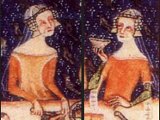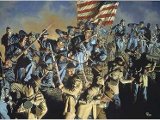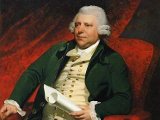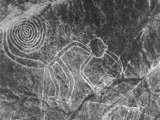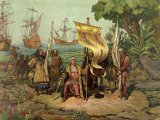Battle of Verdun
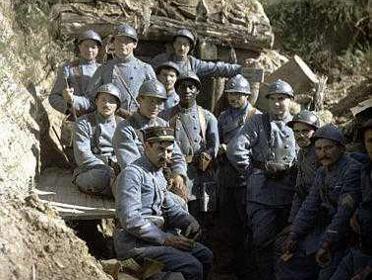
The Battle of Verdun which was fought between the French and German forces north of the city of Verdun from February 21 to December 18, 1916, was the longest and one of the deadliest battles of World War I. The battle which is also remembered for Philippe Petain’s “They shall not pass” is considered a French tactical victory because the Germans failed to achieve their main objective. Its outcome, however, was in reality a costly stalemate as neither of both sides managed to achieve a decisive victory.
The Germans planned an attack on the salient around Verdun on February 12 but they had to postpone the offensive due to bad weather enabling the French to bring reinforcements to the fortifications of Verdun. The offensive which was preceded by heavy artillery bombardment therefore started on February 21. The French who were poorly prepared for the German attack suffered heavy casualties during the bombardment and by February 25, the Germans managed to capture Fort Douaumont, the largest of the Verdun’s forts and several other key points. Philippe Petain who was meanwhile appointed commander of the Verdun salient, however, reorganized the French defense and slowed down the German advance by the end of February. He also made sure that the Bar-le-Duc road, the only supply route to Verdun which came to be known as the “Sacred Road” remained open.
Most German gains in March and April were recaptured by the French shortly thereafter. Petain who was meanwhile promoted was replaced by more aggressive Robert Nivelle as commander at Verdun. Nivelle’s attempt to recapture Fort Douaumont, however, failed. In late May, the Germans took the initiative and nearly broke through the French defense by the end June. Petain started preparing for withdrawal when Falkenhayn called off the offensive due to the opening of the Battle of Somme.
The German Chief of the General Staff caused heavy casualties to his enemy at Verdun but he failed to bring the French Army to the knees. The Germans suffered heavy casualties as well losing over 300,000 men, just like the French who managed to recapture the lost forts and push the Germans almost to their starting position by December 18. Falkenhayn was replaced by Paul von Hindenburg as Chief of the General Staff due to the failure of the offensive at Verdun, while Petain was celebrated as a national hero for repulsing the German attack.
